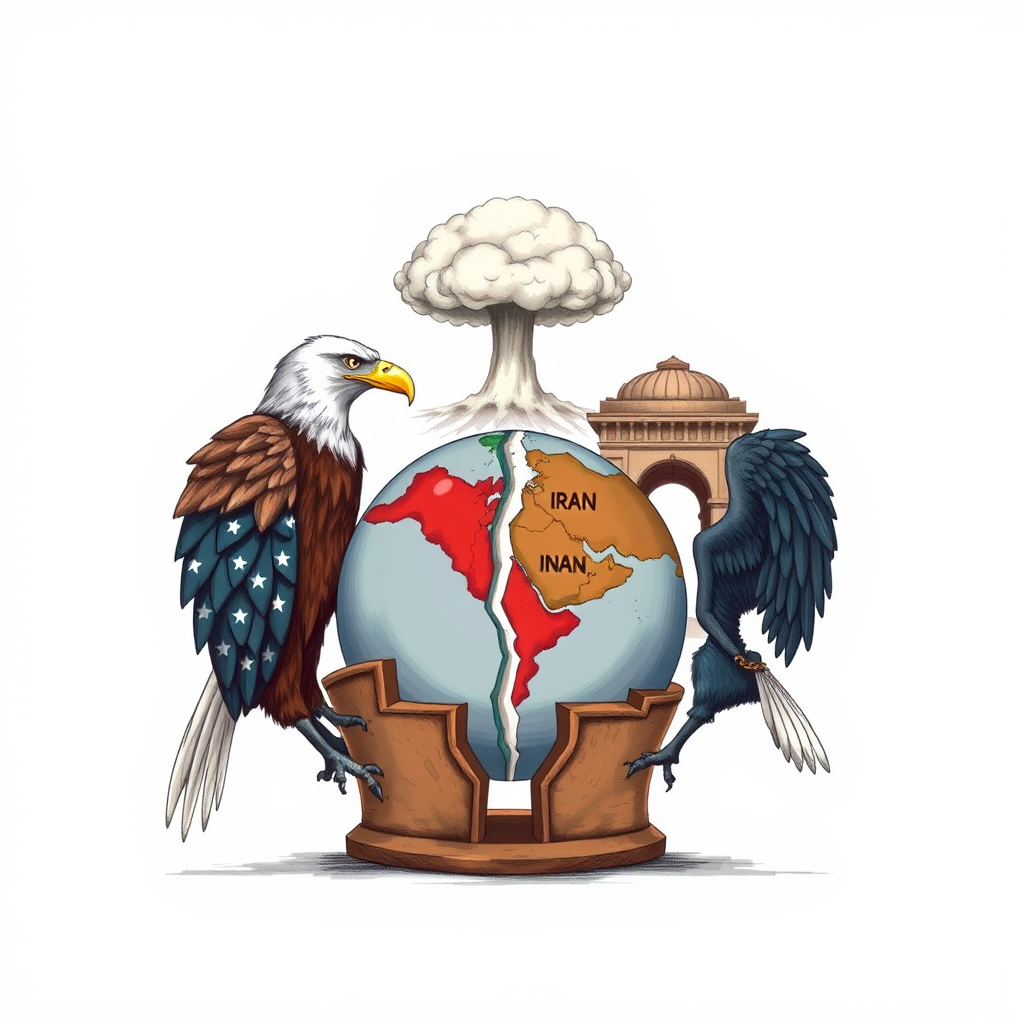Trump Weighs Attack on Iran, Demands Surrender

The escalating tensions between Israel and Iran have entered a dangerous new phase, with former President Donald Trump signaling a willingness to consider direct military intervention. What began as a retaliatory strike by Israel following an earlier Iranian attack has rapidly evolved into a situation where the U.S. is actively contemplating strikes on Iranian soil, a move that could dramatically widen the conflict.
Initial reports indicated the U.S. maintained a distance from Israel’s initial offensive, merely being informed of the impending action. However, the New York Times reports the U.S. provided undisclosed intelligence support, and Trump is seriously weighing a more aggressive escalation. Despite official White House statements emphasizing defensive deployments of warships and personnel to the region, sources indicate Trump is considering preemptive action, rather than waiting for a potential Iranian attack on U.S. interests.
Potential actions range from logistical support for Israeli aircraft to a direct strike on Iran’s underground nuclear facility at Fordow, a plan reportedly gaining traction with Trump. He has also privately discussed, and initially rejected, a proposal to assassinate Iranian Supreme Leader Ayatollah Ali Khamenei, fearing further regional destabilization. Trump’s rhetoric has become increasingly bellicose, demanding “unconditional surrender” from Iran and claiming “complete and total control of the skies” over the nation. He even publicly stated knowledge of Khamenei’s location, though later indicated he wouldn’t authorize an immediate strike.
This shift in tone follows Trump’s abrupt departure from the G7 summit, ostensibly to focus on the Middle East crisis. He dismissed ongoing negotiations with Iran over its nuclear program, claiming Iran was on the verge of acquiring nuclear weapons despite recent U.S. intelligence assessments to the contrary. Director of National Intelligence Tulsi Gabbard testified in March that Iran was not actively pursuing a nuclear weapon, but Trump dismissed her assessment.
The situation is further complicated by accusations from Iran that the U.S. was complicit in Israel’s attacks, and warnings of retaliation should the U.S. become more directly involved. Iranian state television has even urged citizens to remove the encrypted messaging app WhatsApp, alleging it shares user data with Israel – claims WhatsApp denies.
Analysts suggest Israel’s attacks could ironically incentivize Iran to pursue nuclear weapons, a risk that would be amplified by U.S. intervention. Rosemary Kelanic, director of the Middle East program at Defense Priorities, notes the incentive to develop a nuclear weapon “would multiply dramatically if the United States joins the war.”
The prospect of unilateral military action by the U.S. is raising concerns among lawmakers, who question the legality of such a move without a congressional declaration of war. Vice President J.D. Vance acknowledged the president’s authority in this matter, while Trump himself shared a message comparing the current situation to President Harry Truman’s decision to drop atomic bombs on Japan.
The situation is incredibly precarious. While Trump frames his actions as necessary to prevent Iran from acquiring a nuclear weapon, the risk of escalating a regional conflict into a full-blown war is substantial. The current trajectory, characterized by increasingly aggressive rhetoric and the consideration of preemptive military strikes, is deeply concerning and demands a more measured and diplomatic approach. A rush to military action, without a clear strategy and congressional authorization, could have devastating consequences for the region and beyond.